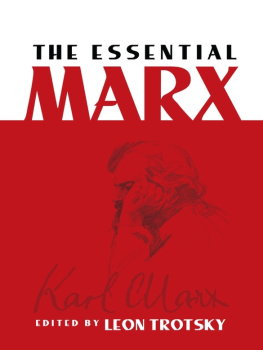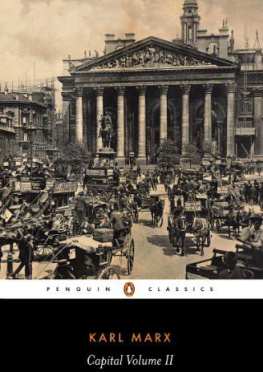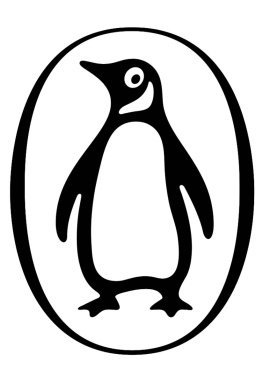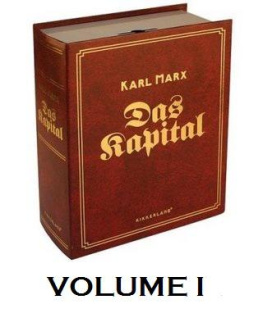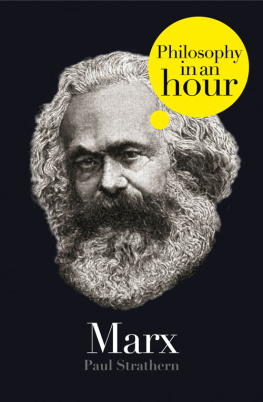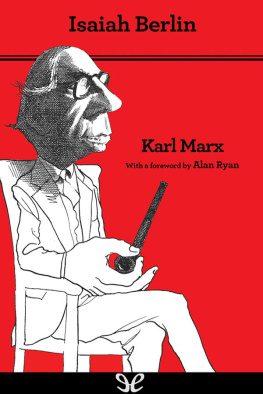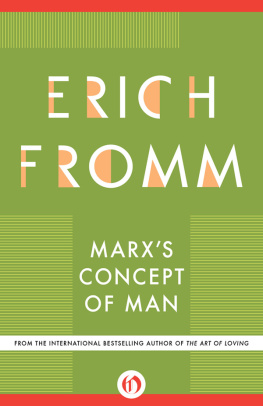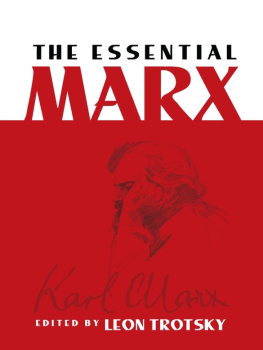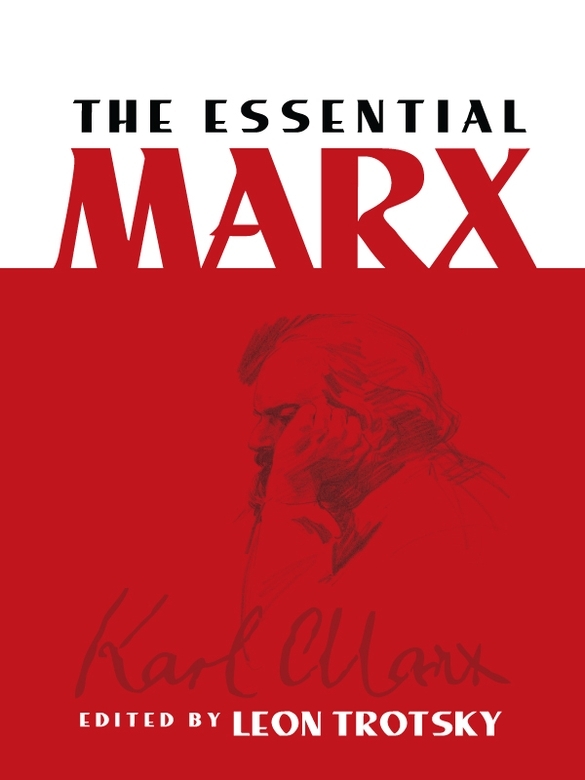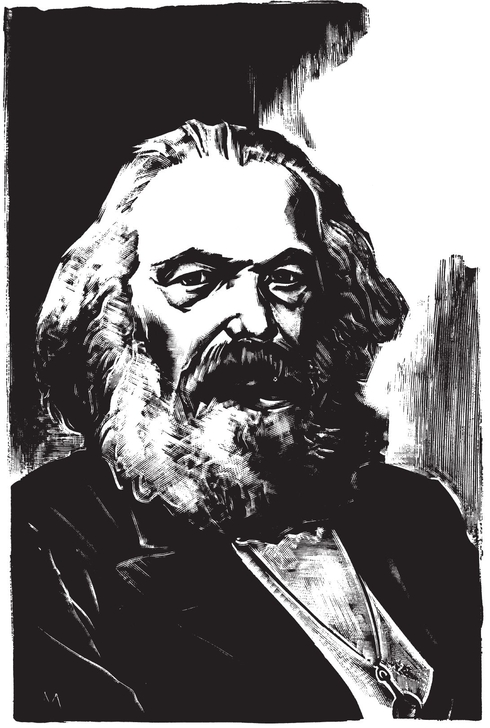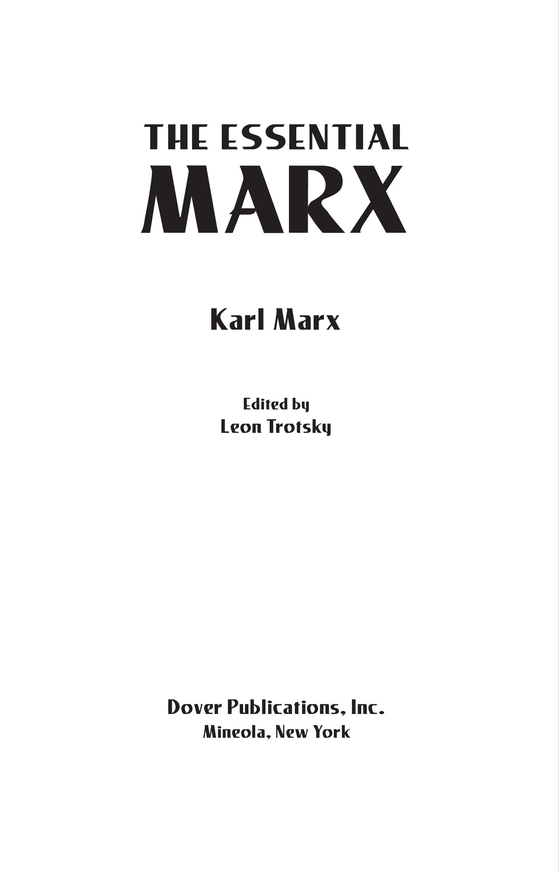WHAT IS THE READER OFFERED ?
This book compactly sets forth the fundamentals of Marxs economic teaching in Marxs own words. After all, no one has yet been able to expound the labor theory of value better than Marx himself.
Certain of Marxs argumentations, especially in the first, the most difficult chapter, may seem to the uninitiated reader far too discursory, hair-splitting, or metaphysical. As a matter of fact, this impression arises in consequence of the want of habit to approach overly habitual phenomena scientifically. The commodity has become such an all-pervasive, customary, and familiar part of our daily existence that we do not even attempt to consider why men relinquish important objects, needed to sustain life, in exchange for tiny discs of gold or silver that are of no earthly use whatever. The matter is not limited to the commodity. One and all of the categories of market economy seem to be accepted without analysis, as self-evident, as if they were the natural basis of human relations. Yet, while the realities of the economic process are human labor, raw materials, tools, machines, division of labor, the necessity to distribute finished products among the participants of the labor process, and the like, such categories as commodity, money, wages, capital, profit, tax, and the like are only semi-mystical reflections in mens heads of the various aspects of a process of economy which they do not understand and which is not under their control. To decipher them, a thoroughgoing scientific analysis is indispensable.
In the United States, where a man who owns a million is referred to as being worth a million, market concepts have sunk in deeper than anywhere else. Until quite recently Americans gave very little thought to the nature of economic relations. In the land of the most powerful economic system economic theory continued to be exceedingly barren. Only the present deep-going crisis of, American economy has bluntly confronted public opinion with the fundamental problems of capitalist society. In any event, whoever has not overcome the habit of uncritically accepting the ready-made ideological reflections of economic development, whoever has not reasoned out, in the footsteps of Marx, the essential nature of the commodity as the basic cell of the capitalist organism, will prove to be forever incapable of scientifically comprehending the most important manifestations of our epoch.
MARXS METHOD
Having established science as cognition of the objective recurrences of nature, man has tried stubbornly and persistently to exclude himself from science, reserving for himself special privileges in the shape of alleged intercourse with supersensory forces (religion), or with timeless moral precepts (idealism). Marx deprived man of these odious privileges definitely and forever, looking upon him as a natural link in the evolutionary process of material nature ; upon human society as the organization of production and distribution ; upon capitalism as a stage in the development of human society.
It was not Marxs aim to discover the eternal laws of economy. He denied the existence of such laws. The history of the development of human society is the history of the succession of various systems of economy, each operating in accordance with its own laws. The transition from one system to another was always determined by the growth of the productive forces, i. e., of technique and the organization of labor. Up to a certain point, social changes are quantitative in character and do not alter the foundations of society, i.e., the prevalent forms of property. But a point is reached when the matured productive forces can no longer contain themselves within the old forms of property ; then follows a radical change in the social order, accompanied by shocks. The primitive commune was either superseded or supplemented by slavery ; slavery was succeeded by serfdom with its feudal superstructure ; the commercial development of cities brought Europe in the sixteenth century to the capitalist order, which thereupon passed through several stages. In his Capital Marx does not study economy in general, but capitalist economy, which has its own specific laws. Only in passing does he refer to other economic systems, to elucidate the characteristics of capitalism.
The self-sufficient economy of the primitive peasant family has no need of a political economy, for it is dominated on the one hand by the forces of nature and on the other by the forces of tradition. The self-contained natural economy of the Greeks or the Romans, founded on slave labor, was ruled by the will of the slave-owner, whose plan in turn was directly determined by the laws of nature and routine. The same might also be said about the medieval estate with its peasant serfs. In all these instances economic relations were clear and transparent in their primitive crudity. But the case of contemporary society is altogether different. It destroyed the old self-contained connections and the inherited modes of labor. The new economic relations have linked cities and villages, provinces and nations. Division of labor has encompassed the planet. Having shattered tradition and routine, these bonds have not composed themselves according to some definite plan, but rather apart from human consciousness and foresight. The interdependence of men, groups, classes, nations, which follows from division of labor, is not directed by anyone. People work for each other without knowing each other, without inquiring about one anothers needs, in the hope, and even with the assurance, that their relations will somehow regulate themselves. And by and large they do, or rather, were wont to.

